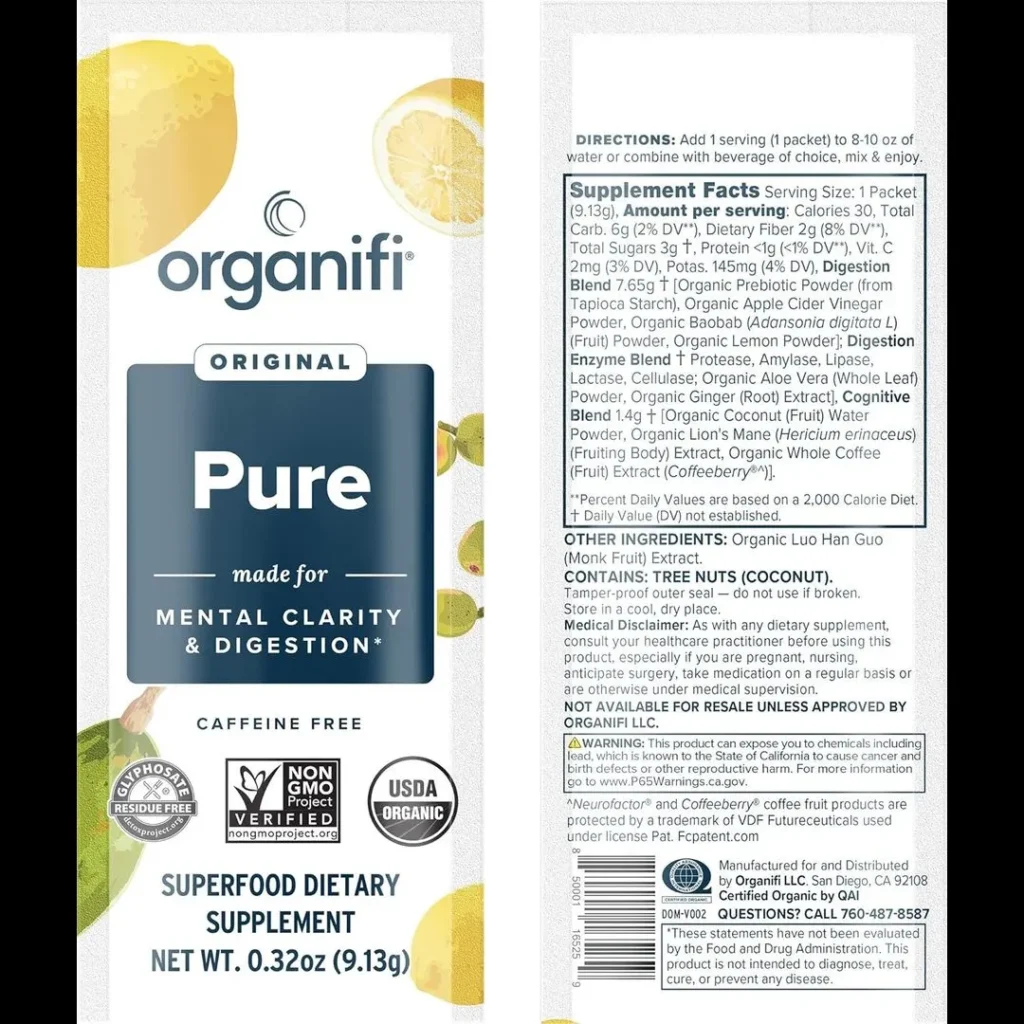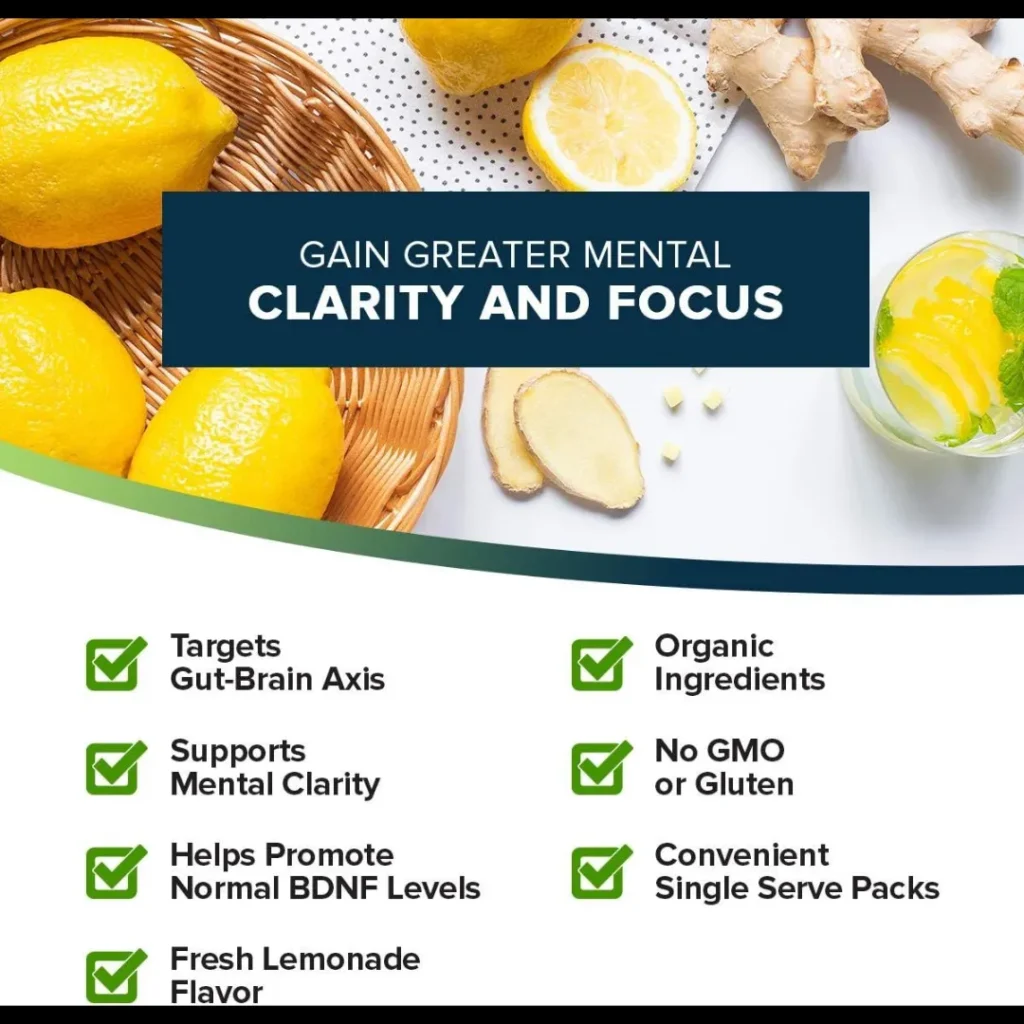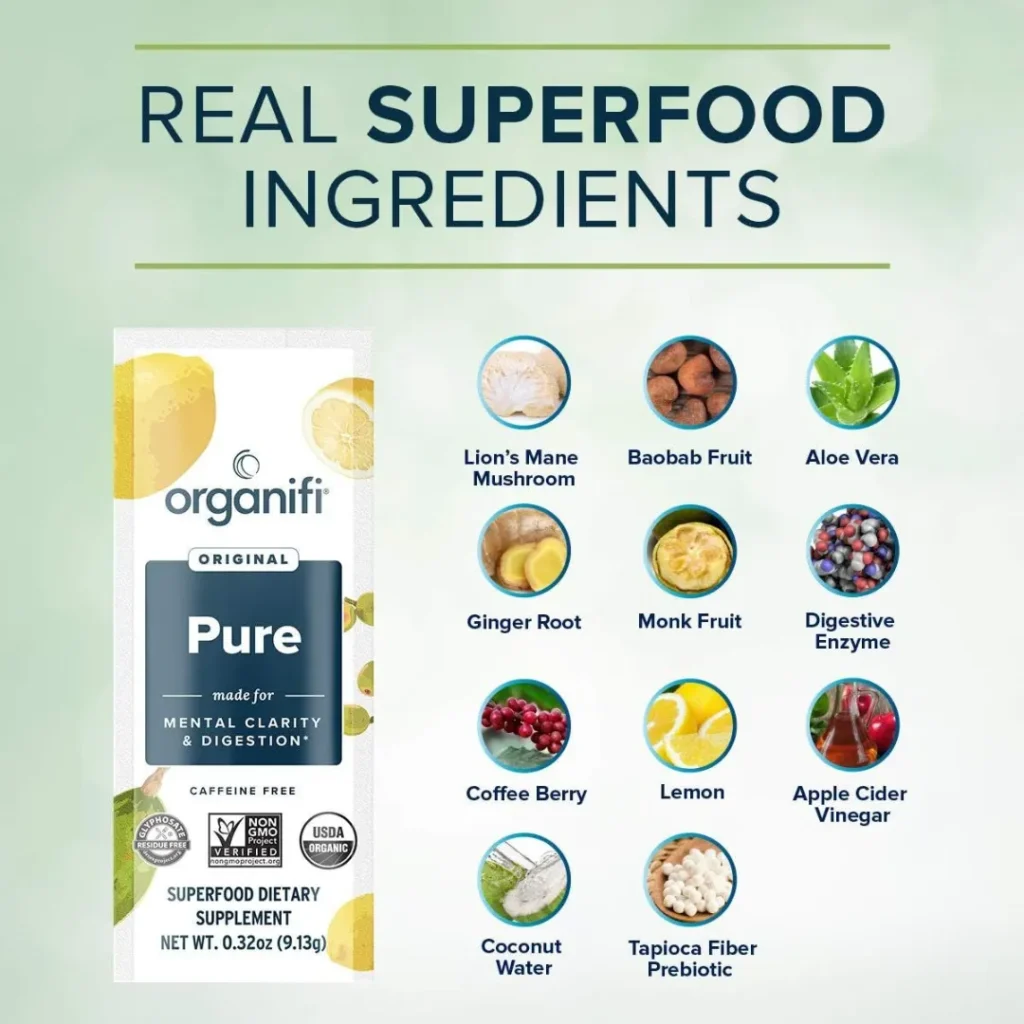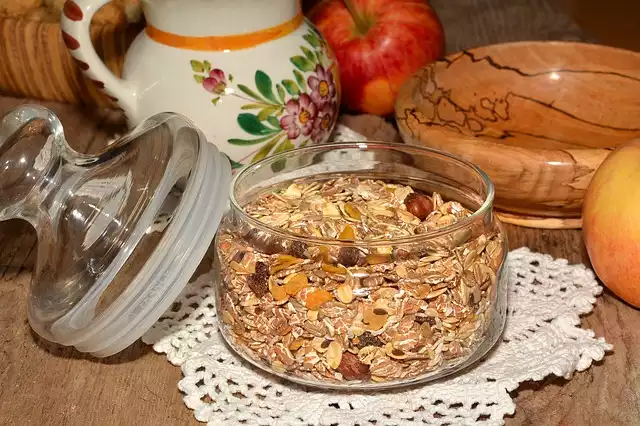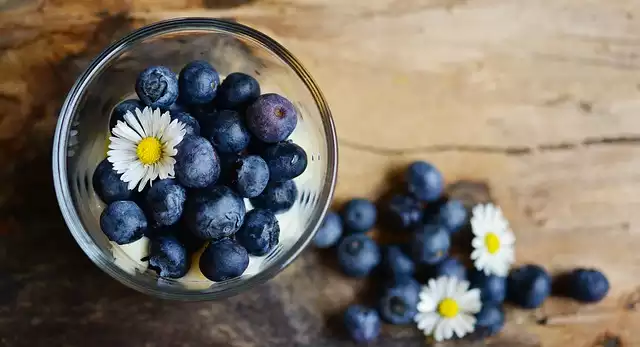Superfoods for Optimal Health
Boost Your Wellbeing Today!
Discover the ultimate list of superfoods that are not just good for your health but essential for a balanced diet.
These nutrient-packed foods are what you need to elevate your wellness journey. Learn how to include them in your daily routine to be your best self.
Ancient civilizations revered certain foods for their healing properties, long before the term “superfood” entered our modern lexicon.
Today, the allure of these nutrient-packed foods is stronger than ever, promising a path to optimal health amidst a sea of dietary trends.
This article peels back the layers on these potent eatables, demystifying their benefits for the health-conscious individual.
Superfoods are not just a fad or a marketing gimmick; they are powerhouses of vitamins, minerals, and antioxidants.
From quinoa to blueberries, each superfood brings its unique profile of health-promoting properties to the table, with scientific research increasingly supporting their positive impacts on our well-being.
This guide is your roadmap through the dense jungle of nutritional information, charting a course towards healthier eating habits.
Embark on a culinary adventure that transcends mere sustenance, diving into the colorful world of superfoods that promise to bolster your heart, sharpen your mind, and fortify your immune system.
With tips on incorporating these foods into your diet and understanding their role in combating specific health conditions, “The Ultimate Guide to Superfoods for Optimal Health” is the companion you need for a life brimming with vitality.
Table of Contents Superfoods for Optimal Health
What Are Superfoods?
Superfoods have become a buzzword across food industries and health communities, representing a select group of foods that pack a powerhouse of nutrients aimed at bolstering our health.
These nutritionally dense foods stand apart for their rich concentrations of vitamins, minerals, fiber, omega-3 fatty acids, and powerful antioxidants that collectively contribute to optimal well-being.
Although there is no standardized scientific classification for these foods, the term superfoods is broadly applied to items like succulent salmon, vibrant broccoli, and juicy blueberries, all known for their potential to reduce the risk of chronic diseases and improve health outcomes.
The appeal of superfoods lies in their varied nature, featuring everyday kitchen staples as well as more rare and exotic choices that together form a diverse palette of nutritious foods.
Leafy greens, for instance, are lauded for their high content of vitamins and minerals that support blood pressure regulation and heart health.
On the fringe, superfoods such as acai berries and avocados have gained fame for their unique health effects, including the improvement of bone health and assistance in combatting oxidative stress.
Health experts and dietitians stress that while superfoods are indeed beneficial, the key to a healthy lifestyle is consuming a balanced diet enriched with a variety of foods.
A diet that leans heavily on plant-based foods, for example, can provide a tapestry of antioxidants each with their unique health benefits.
In essence, superfoods should be viewed not as a panacea, but as a complementary piece to the puzzle of a healthy, well-rounded diet.
Definition for Superfood
The concept of a “superfood” is more a product of health-driven marketing than of scientific criteria, but it broadly encompasses foods incredibly rich in health-benefiting nutrients like antioxidants, fiber, and essential fatty acids.
While formal definitions may vary, major lexicons such as the Oxford and Merriam-Webster dictionaries echo a common theme in describing superfoods as those particularly valuable for their dense nutritional content and potential to enhance health and well-being.
These foods span across both plant-based and animal-based sources, showcasing a range of beneficial substances that have been embraced by healing traditions across the globe, including Traditional Chinese Medicine and Ayurveda.
Benefits of Superfoods
The benefits of incorporating superfoods into one’s diet are manifold.
Aside from delivering a high concentration of essential nutrients, superfoods such as those rich in omega-3 fatty acids can significantly support heart health, while options like black beans, an excellent source of protein and fiber, may protect against types of cancer.
The phytochemicals present in these nutritious foods also play roles in chronic disease prevention, from reducing inflammation to bolstering the immune system.
While the term “superfood” isn’t founded in a regulated, scientific understanding, the designation is typically reserved for foods that bring to the table a slew of desirable nutrients and health advantages.
Regular consumption of these foods can help meet dietary needs and address nutrient deficits prevalent in many modern diets, offering a practical means to sustain health and combat the aging process.
Superfood List
Superfoods come in many shapes and flavors, each brimming with health benefits.
Leafy greens such as kale, spinach, and Swiss chard are renowned for their high vitamin and mineral content, including vitamins A, C, and K, which are essential for maintaining bone health and mitigating the risk of heart disease.
Berries like blueberries and strawberries are celebrated as a rich source of antioxidants, which help to combat oxidative stress in the body.
Cruciferous vegetables – think broccoli, Brussels sprouts, and collard greens – are packed with phytochemicals and nutrients that have been linked to a lower risk of chronic diseases, including several types of cancer.
Whole grains and seeds like quinoa and flaxseed offer a wealth of fiber and essential amino acids, which are the building blocks of proteins.
The list of superfoods is as expansive as it is diverse, with each offering unique health benefits.
To help incorporate these nutritional powerhouses into your diet, consider the following superfood staples that can be easily added to various dishes:
- Avocados: A source of healthy monounsaturated fats and potassium
- Black Beans: Rich in plant-based protein and fiber
- Almonds: Offer protein, fiber, and a source of calcium
- Quinoa: Contains a full spectrum of essential amino acids
- Chia Seeds: Packed with omega-3 fatty acids and fiber
Embracing a diet that includes a selection of these superfoods can help ensure a balanced intake of the nutrients your body needs to function at its best.
Whether you’re whipping up a smoothie, crafting a vibrant salad, or simmering a hearty stew, superfoods can be a flavorful and nutritious addition to your meals.
Understanding Nutritional Powerhouses
Superfoods are like nature’s treasure chest, bursting with nutrients vital for our well-being.
Awarded this title for their dense concentration of beneficial elements, these foods are becoming cornerstones of a health-conscious lifestyle.
Take leafy greens, for example.
Kale and spinach are not just a green garnish but power players in fighting chronic diseases.
These lush vegetables are excellent sources of fiber, vitamins, and minerals that support heart health and can diminish the risk of type 2 diabetes.
Bearing a colorful array of health effects, berries like blueberries and raspberries are another must-have on your plate.
They offer potent antioxidants which help combat oxidative stress and may lower the chance of heart disease and certain types of cancer.
Not all superfoods are bold in color, though.
Black beans stand out as a plant-based source of protein and fiber.
They’re key for a balanced diet, bolstering cardiovascular and bone health.
Lastly, an aromatic twist to the superfood list—cinnamon.
This spice is a treasure, packed with antioxidant compounds, with the added bonus of potentially easing blood sugar and cholesterol.
A balanced diet incorporating these nutritious foods promises a bountiful return on health, keeping the risk of heart disease and chronic conditions at bay.
| Superfood | Benefit |
| Leafy Greens | Heart health, reduces chronic disease |
| Berries | Antioxidant-rich, fights disease |
| Black Beans | Protein source, supports heart & bones |
| Cinnamon | Lowers blood sugar, antioxidant-rich |
Exploring Different Types of Superfoods
Superfoods are nutrient powerhouses that pack large doses of antioxidants, vitamins, and minerals, and they can be a potent force against various health issues.
The concept of superfoods was popularized by the food industries to promote specific health benefits, yet a diverse and balanced diet incorporating these foods can indeed contribute to overall wellness.
Table: Superfoods Quick Look
| Superfood Group | Benefits |
| Leafy Greens | Vitamins A, C, K, fiber, reduces inflammation |
| Cruciferous Veg | Folate, vitamins A, C, K; anticancer properties |
| Berries | Antioxidants, flavonoids, heart health |
| Citrus Fruits | Vitamin C, fiber, reduces risk of macular degeneration |
| Beans/Legumes | Protein, fiber, heart health |
| Nuts and Seeds | Omega-3s, antioxidants, good fats |
| Whole Grains | Fiber, antioxidant, supports heart & blood sugar |
Leafy Greens
A bowl of dark, leafy greens is more than just a salad; it’s a rich source of nutrients vital for good health.
Kale, spinach, and Swiss chard are powerhouses teeming with vitamins A, C, and K, alongside minerals like iron and calcium.
Their main lauds come from phytochemicals and carotenoids—warriors against inflammation and some types of cancer.
Swiss chard stands out with its unique combination of antioxidants and high levels of vitamin K, which are particularly beneficial for managing blood sugar, a boon for those with diabetes.
Consume them in smoothies or sautéed as a side dish to support your body’s daily defense against chronic diseases.
Cruciferous Vegetables
Broccoli, cauliflower, and Brussels sprouts make the list of cruciferous vegetables known for their high nutritional content.
These veggies carry sulforaphane, folate, and other phytonutrients, proven to wield anti-inflammatory effects and help manage gut health.
Mustard seed, known for enhancing the bioavailability of sulforaphane, is worth adding to your diet alongside these vegetables.
These compounds pack a punch against cellular damage and have shown potential in reducing the risks of colitis and Crohn’s disease.
From steaming to roasting, these superfoods can be deliciously integrated into your diet.
Berries
Berries burst with a spectrum of benefits, from antioxidants to fiber and essential vitamins.
Anthocyanins, the flavonoids that give berries their vivid colors, are also the molecules behind their heart-protective and disease-fighting capabilities.
The versatility of berries makes it simple to incorporate them into any meal – blend them into smoothies, sprinkle over cereal, or mix them in salads.
They’re not just a treat to your taste buds but also an ally to your immune system and digestion.
Citrus Fruits
Bright, tangy citrus fruits such as oranges, lemons, and grapefruits are synonymous with vitamin C and fiber.
They’re not only refreshing but also form a barrier against vision impairment like macular degeneration, especially in older adults.
Integrate them into your diet through freshly squeezed juices or as fresh snacks to enjoy their hydration properties and preventive benefits against age-related diseases.
Beans and Legumes
Black beans, lentils, and chickpeas aren’t just for vegetarians seeking a protein source; they are abundant in fiber and nutrients such as folate and magnesium.
Their antioxidant profiles contribute to slowing the progression of chronic diseases, while the fiber promotes satiety and assists in cholesterol management.
Whether tossed into salads, blended into soups, or served as a side dish, beans and legumes are stellar contributors to heart health.
Nuts and Seeds
Nuts and seeds are tiny but mighty elements of the superfood family.
They’re loaded with fiber, healthy fats like omega-3 fatty acids, and other vital nutrients.
While high in calories, nuts like pistachios can be part of a weight management plan when eaten in moderation.
Seeds like chia are dense in polyphenols, supporting the heart and brain.
Meanwhile, walnuts are celebrated for their positive impact on cognitive abilities.
Snacking on a handful of mixed nuts or sprinkling seeds onto a salad can be a simple yet effective way to harness their benefits.
Whole Grains
Turning to whole grains such as quinoa, oats, and brown rice is an excellent way to incorporate complex carbohydrates into your diet.
They come with a promise of improved heart health and stable blood sugar levels, all thanks to their rich fiber content.
These grains can also contribute to cholesterol reduction and are simple to introduce into meals, whether as a hearty porridge for breakfast or a wholesome base for a stir-fry meal.
By choosing whole grains over refined ones, you ensure your body reaps a maximum harvest of nutritional wealth.
The Health Benefits of Superfoods
Superfoods, while not having a scientifically regulated definition, are universally understood to be packed with large amounts of vitamins, minerals, antioxidants, and other nutrients beneficial to health.
They have been identified as contributing to the prevention of several chronic diseases, such as various types of cancer and heart disease, by providing an excellent source of compounds that are pivotal in promoting health and combating illness.
These nutritious foods often contain a synergy of essential amino acids, fatty acids like omega-3, fiber, vitamins like D and E, phytochemicals, and minerals including calcium and potassium.
Their range is broad, encompassing everything from vibrant berries and leafy greens to nuts, seeds, and legumes, all of which hold powerful antioxidants and health benefits.
By mindfully incorporating these foods into a balanced diet, individuals can enhance their body’s immune response, reduce oxidative stress, and contribute to their overall health and longevity.
Heart Health
The saying “food for the heart” takes on a literal dimension when considering superfoods.
Foods such as fatty fish rich in omega-3 fatty acids are a great ally in the battle against heart disease.
Olive oil, with a makeup of vitamin E, polyphenols, and monounsaturated fats, is recognized for its heart-healthy effects.
Similarly, despite being high in fat, nuts and seeds are considered protectors of heart health.
Rich sources of fiber from whole grains also contribute to a well-functioning cardiovascular system, while leafy greens like kale and Swiss chard carry essential vitamins and phytochemicals that support heart health.
Brain Health
When it comes to superfoods and cognitive functions, berries, especially blueberries, stand at the forefront for their rich antioxidant profile, offering benefits to memory and motor skills.
The MIND diet emphasizes the importance of these and other superfoods — such as vegetables, beans, and nuts — for brain health and the potential to slow down neurodegenerative processes.
Research from Tufts University suggests that flavonoid-rich foods may reduce the risk of dementia.
Green leafy vegetables are key for cognitive health, with nutrients like folate playing a major role in the maintenance of cognitive abilities and depression management.
Eye Health
Certain superfoods offer a vision of better eye health.
Avocados, for instance, are lauded for their wealth of nutrients and antioxidants beneficial to eye health.
Pistachios have been scientifically shown to promote eye well-being and may mitigate the risk of eye diseases.
Goji berries and green tea, due to their respective nutrient contents and anti-inflammatory properties, join this lineup of eye-friendly foods, while studies have seen a connection between coffee intake and a lowered risk of developing conditions such as glaucoma, attributed to the antioxidants present in the beverage.
Weight Loss
Superfoods can serve as a significant asset in weight management.
Legumes, for example, provide a source of protein and fiber that can enhance satiety, making them integral to a weight management plan.
Nuts and seeds, along with their fiber and antioxidants, help fight inflammation and oxidative stress.
Among these, almonds are noted for their vitamin E content, helping not just in weight management but also offering other health perks.
Incorporating a range of superfoods, including leafy greens and berries, can lower inflammation, cholesterol, and potentially reduce the risk of certain cancers, thereby supporting weight loss efforts.
Digestive Health
The role of superfoods in promoting digestive health is significant.
Flaxseeds, with their fibrous, omega-3, and polyphenolic content, are excellent for gut health and regularity.
The unique compounds in cruciferous vegetables like broccoli help maintain a balanced gut microbiome.
Moreover, the omega-3 fatty acids in seafood play a role in digestive function.
The consumption of a variety of superfoods such as kale and whole grains can reduce inflammation, positively impacting digestive wellness.
Bone Health
The necessity for strong bones can be met by incorporating certain superfoods into one’s diet.
Broccoli rabe is an excellent source of vitamin K, vital for bone health, while salmon, with its rich nutrient profile, also supports strong bones.
Dairy products like cottage cheese offer whey protein, essential for bone maintenance.
Furthermore, the fiber and plant compounds in beans and legumes contribute to overall bone welfare, as do the minerals found in spinach.
Immune Function
Superfoods play a substantial role in supporting immune function.
The probiotics in yogurt, for example, are linked with improved digestion and immune response.
Garlic, through its nutrient density, strengthens immune function and offers protective effects against certain diseases.
Kale and related superfoods, through their delivery of vital nutrients, also contribute significantly to enhancing one’s immunity.
Intertwining these superfoods into daily dietary practices, as shown, provides a versatile and delicious strategy for optimizing one’s health across a spectrum of areas, from heart to immune system functionality.
Incorporating Superfoods into Your Diet
In the quest for optimal health, superfoods are not a magic cure, but integrating them into your daily diet can boost your intake of essential nutrients.
These are not just ordinary foods; they are an excellent source of vitamins, minerals, healthy fats, fiber, and antioxidants—all key components for maintaining and improving health.
When designing a healthy eating plan, consider the synergy of nutrients these powerhouses can offer.
To incorporate superfoods effectively, variety is key.
Enjoy the foods you love while gradually increasing the proportion of fruits and vegetables in your meals.
Rather than opting solely for juices, which can contain added sugars and lack fiber, utilize whole pieces of fruit and vegetable to gain the most nutritional benefits.
For those with specific health conditions, consulting a physician or dietitian is crucial to tailor your diet for the best possible outcomes.
Everyday superfoods are abundant and can be included in every meal.
By consuming a wide assortment, you’re more likely to cover most of your nutritional needs.
Keep in mind that our bodies can’t maximize health with just one superfood, so diversifying your choices is vital.
And for convenience, don’t overlook frozen fruits or superfood powders—these can be simple ways to ensure you’re consistently reaping the health effects of these potent foods within your busy lifestyle.
Building a Balanced Diet
The foundation of a healthy life begins with a balanced diet.
The Dietary Guidelines for Americans 2020-2025 encourage a variety of fruits, vegetables, dairy, whole grains, and proteins to promote overall health.
Superfoods fit nicely into this regimen, offering robust sources of nutrients.
However, no single superfood can fulfill all of one’s dietary requirements.
Emphasizing the importance of a balanced approach to eating, these guidelines underscore that healthful results come from a diverse dietary pattern over time.
Looking to historic practices, both Traditional Chinese Medicine and Ayurveda have long recognized the power of superfoods.
Such ancient wisdom utilizes herbs, mushrooms, and plant-based ingredients—not only as food but as medicine.
Modern diets, such as the Mediterranean and DASH, resonate with these traditions, emphasizing high plant-based food consumption and being associated with lower chronic disease incidence.
Remember, while superfoods are part of a balanced diet, moderation and variety are critical.
Organ meats, small fish, and diverse types of green leafy vegetables turn a good diet into a great one, contributing to a rich source of necessary nutrients that combat oxidative stress and help prevent chronic diseases.
Snacks and Smoothies
Superfood-oriented snacking and beverage options are plentiful and can make for tasty, health-boosting treats.
Avocados, one of the most versatile superfoods, can be blended into smoothies, spread onto toast, or included in salads.
Rich in monounsaturated fats and a source of fiber, they’re a heart-healthy addition to any snack.
Tea aficionados will be pleased to know that green tea, a healthful beverage steeped in tradition and antioxidants, offers plentiful health benefits.
Regarding nuts, Brazil nuts stack up as an excellent snack, just a couple provide a daily dose of selenium, which supports immune function and protects against oxidative stress.
Berries and hemp seeds are snack superstars.
Packing a punch with fiber, antioxidants, and powerful antioxidants, berries enhance the nutritional profile of any snack or smoothie.
And the seeds? They are a source of protein and essential amino acids that rival the content found in many meats, making them ideal for topping yogurt or stirring into oatmeal.
Recipe Ideas
Meal planning can be exciting when weaving in superfoods.
Imagine enhancing the nutritional value of your dishes by incorporating kale, sweet potatoes, and broccoli rabe.
These add color, texture, and a host of nutrients to both side dishes and main courses.
For an easy nutritional upgrade, sprinkle flaxseed, almonds, and a dash of cinnamon on your morning yogurt or cereal.
Vary your cooking oils—swapping out refined oils for coconut oil, olive oil, or other healthy fats elevates not just the taste but also the superfood quotient of your meals.
Adopt the trend of bowl meals, which encourage mixing a variety of superfoods for a concentrated dose of nutrients.
Steam or stir-fry your favorite cruciferous vegetables with healthful seasonings and oils to retain their nutritional benefits and bring out their natural flavors.
Embrace the versatility of superfoods to enjoy the compounding health benefits they provide.
Superfoods and Specific Health Conditions
Superfoods have garnered significant attention for their potential to support health and mitigate the risks of specific health conditions.
These potent foods carry a treasure trove of nutrients that can target and alleviate symptoms, reverse adverse health effects, and provide preventative benefits.
For instance, the remarkable antioxidant capacity of blueberries is renowned, with studies demonstrating their role in protecting against various conditions like heart disease, certain types of cancer, cognitive decline, and eye health challenges.
Antioxidants play a pivotal role in combating the damage caused by free radicals, known to contribute to chronic diseases.
Superfoods like blueberries are also excellent sources of fiber, which supports digestive health.
Similarly, the anthocyanins found in pomegranate juice are not only responsible for the vibrant color of these fruits but also offer protective health benefits.
These potent antioxidant compounds help to reduce the risk of chronic diseases by inhibiting the growth of cancer cells and mitigating oxidative stress that could otherwise lead to heart disease.
In the context of inflammation, which is associated with numerous health conditions including heart disease, arthritis, and cancer, superfoods that offer anti-inflammatory effects are particularly beneficial.
Leafy greens, like spinach and Swiss chard, contain valuable nutrients that are known to reduce inflammation and support overall health.
As the world becomes increasingly environmentally conscious, the topic of superfood sustainability cannot be ignored.
Many superfoods travel long distances to reach our plates, and this has an impact on their carbon footprint.
Mindful consumption involves not only choosing nutritious foods but also considering the broader environmental implications.
To balance personal health needs with those of the planet, it’s advisable to opt for locally sourced superfoods when possible and to be cognizant of the environmental impact of food choices.
Diabetes
Superfoods cater to the need for foods that prevent or manage health problems like obesity and diabetes.
Plant-based foods are particularly effective in this regard due to their low glycemic index which helps in controlling blood sugar levels.
Fruits, vegetables, and whole grains, key staples in a plant-based diet, have been shown to positively impact those living with diabetes.
Quinoa and chia seeds, valued for their high protein and fiber content, have become increasingly popular due to their capacity to keep blood sugar stable.
The complete protein provided by quinoa, along with the omega-3 fatty acids found in chia seeds, makes them ideal candidates for diabetes-friendly diets.
Additionally, the global increase in superfood product launches demonstrates growing consumer interest in these health-promoting foods, with the United States leading the way.
Cancer
Superfoods have also made waves in the context of cancer prevention.
Key phytochemicals in foods such as berries, cruciferous vegetables, and leafy greens have shown potential in safeguarding the body from damage that could lead to cancer.
With a colorful array of fruits and vegetables, individuals introduce a diverse spectrum of these protective compounds into their diets.
Kale, spinach, and collard greens are particularly rich in chlorophyll and dietary fibers, which have associations with a reduced risk of colorectal cancer.
Furthermore, walnuts are high-fat nut laden with antioxidants that can potentially play a role in preventing certain types of cancer.
The careful inclusion of these cancer-preventative superfoods into one’s diet offers a proactive approach to health maintenance.
Cardiovascular Disease
Cardiovascular disease remains a leading cause of mortality worldwide, and diet plays a critical role in its prevention and management.
The incorporation of superfoods into the diet is a strategic approach to enhancing heart health.
Pomegranate juice not only tantalizes the taste buds but also can lower blood pressure and reduce the oxidative stress that underlies heart disease.
Similar benefits can be attributed to legumes like beans and lentils, which are resourceful in nutrients that bolster cardiovascular health.
Nuts and seeds bring to the table healthy fats that can be instrumental in protecting against heart disease.
Moreover, olive oil is awash with polyphenols and monounsaturated fatty acids that may reduce heart disease risk.
Finally, cinnamon’s anti-inflammatory effects may hold the potential to lower blood pressure and cholesterol, making it invaluable for cardiovascular health.
Adopting a diet rich in these superfoods can lead to better heart health and a reduced risk of cardiovascular disease.


